Content for TS 23.081 Word version: 18.0.0
3 Connected line identification presentation (COLP)
3.1 Handling of connected line identification presentation
3.1.1 Interrogation
3.1.2 Interactions with call forwarding supplementary services
3.2 Functions and information flows
3.3 Information stored in the HLR
3.4 State transition model
3.5 Transfer of information from HLR to VLR
3.6 Information stored in the VLR
3.7 Handover
...
...
3 Connected line identification presentation (COLP) p. 32
3.1 Handling of connected line identification presentation p. 32
3.1.1 Interrogation p. 32
Status check
The mobile subscriber can request the status of the supplementary service and be informed if the service is provided to him/her. This procedure is illustrated in Figure 3.1.

Figure 3.1: Interrogation of connected line identification presentation
(⇒ copy of original 3GPP image)
(⇒ copy of original 3GPP image)
3.1.2 Interactions with call forwarding supplementary services p. 33
If the forwarding user selects the option that the calling user is not notified of the call forwarding, then the calling user shall receive no forwarding notification, and the calling user shall not receive the connected user's identity when the call is answered, unless the calling user has override capability.
3.2 Functions and information flows p. 33
The following Mobile Additional Functions have been identified for the PLMN:
MAF005
Determination of the connected line identification presentation subscription
The ability of a PLMN component to determine whether the supplementary service is provisioned for the mobile subscriber. See Figure 3.2.
Location: VLR.
MAF006
Determination of the connected party number for offering to the calling party
The ability of a PLMN component to determine and to forward the connected line identity and related indications to the calling party. See Figure 3.3.
Location: originating MSC.
MAF039
Interaction of connected line identification presentation with the call forwarding supplementary services
The ability of a PLMN component to determine the presentation indicator of the connected party number after invocation of a call forwarding service. See Figure 3.4.
Location: forwarding MSC.
The information flow is shown in Figure 3.5.
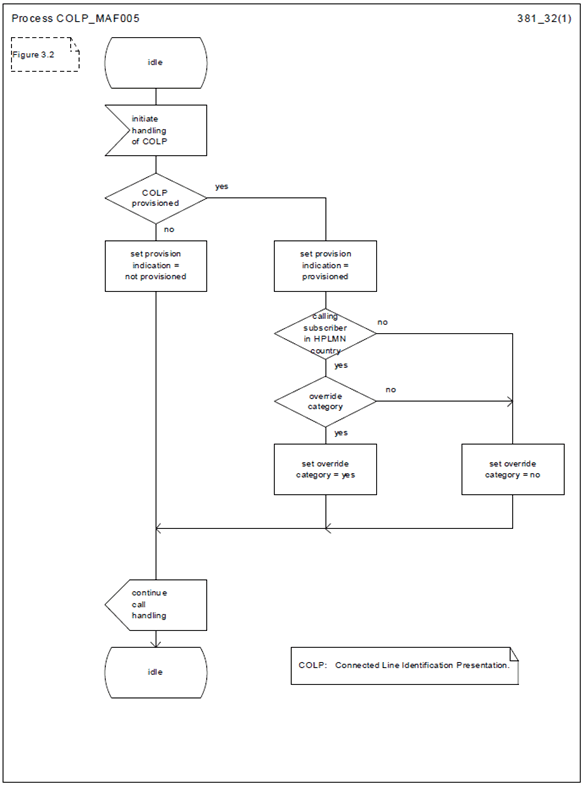
Figure 3.2: MAF005 Determination of connected line identification presentation subscription (VLR)
(⇒ copy of original 3GPP image)
(⇒ copy of original 3GPP image)
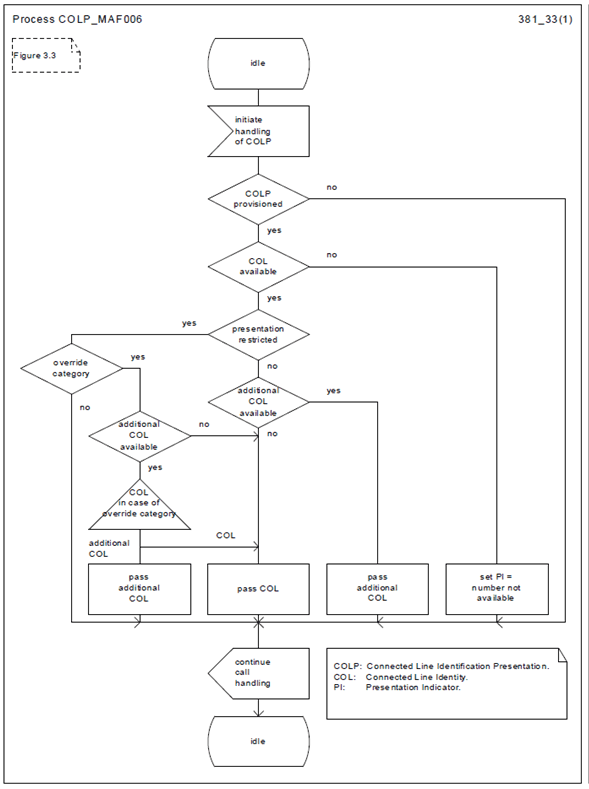
Figure 3.3: MAF006 Determination of the information for offering to the connected party (originating MSC)
(⇒ copy of original 3GPP image)
(⇒ copy of original 3GPP image)
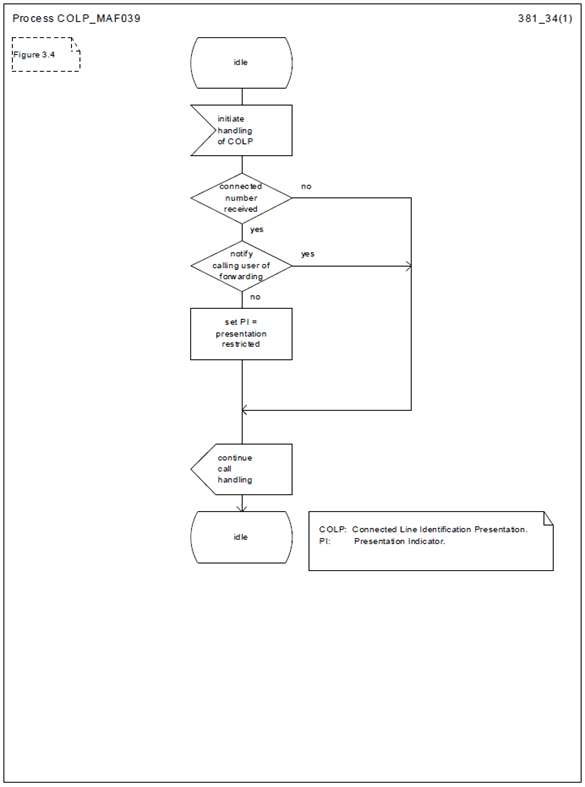
Figure 3.4: MAF039 Interaction between COLP and call forwarding services (forwarding MSC)
(⇒ copy of original 3GPP image)
(⇒ copy of original 3GPP image)
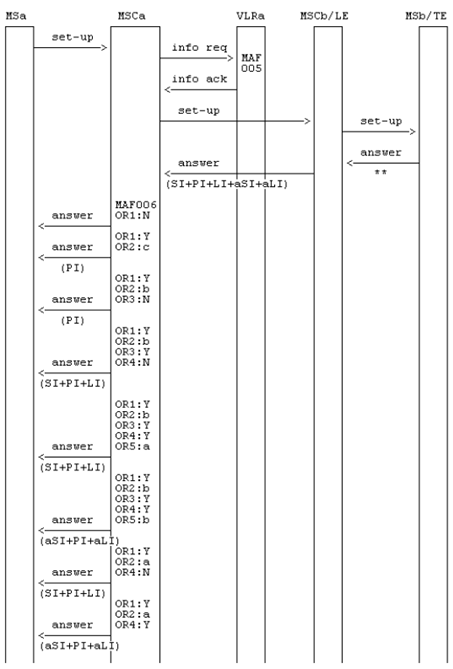
Figure 3.5: Information flow for connected line identification presentation: mobile station to mobile station or fixed terminal
(⇒ copy of original 3GPP image)
(⇒ copy of original 3GPP image)
3.3 Information stored in the HLR p. 40
COLP may have the following logical states (refer to TS 23.011 for an explanation of the notation):
| Provisioning State | Registration State | Activation State | HLR Induction State |
|---|---|---|---|
| (Not Provisioned, | Not Applicable, | Not Active, | Not Induced) |
| (Provisioned, | Not Applicable, | Active and Operative, | Not Induced) |
The HLR shall store the logical state of COLP (which shall be one of the valid states listed above) on a per subscriber basis.
The HLR shall also store the subscription option "override category" on a per subscriber basis.
This parameter takes one of the following values:
- yes;
- no.
3.4 State transition model p. 40
The following Figure shows the successful cases of transition between the applicable logical states of COLP. The state changes are caused by actions of the service provider.
Note that error cases are not shown in the diagram as they normally do not cause a state change. Additionally, some successful requests may not cause a state change. Hence they are not shown in the diagram.
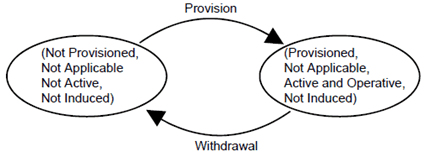
3.5 Transfer of information from HLR to VLR p. 41
If the provisioning state for COLP is "Provisioned" then, when the subscriber registers on a VLR, the HLR shall send that VLR information about the logical state of COLP. The HLR shall send the override category if the VLR is in the HPLMN country. The HLR may send the override category if the VLR is outside the HPLMN country.
If the logical state of COLP or the override category is changed while a subscriber is registered on a VLR then the HLR shall inform the VLR of the new logical state of COLP. If the override category is changed and the provisioning state of COLP is "Provisioned" then the HLR shall inform the VLR about the new override category when the VLR is in the HPLMN country. The HLR may inform the VLR about the new override category when the VLR is outside of the HPLMN country.
3.6 Information stored in the VLR p. 41
For COLP, the VLR shall store the service state information and override category received from the HLR.
If not received from the HLR (case of roaming outside the HPLMN country), the override category shall be set to the default value "no".
3.7 Handover p. 41
Handover will have no impact on the control procedures and the operation of the service.